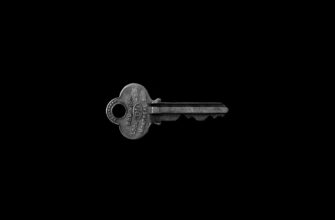When it comes to cryptocurrency security, the private key is one of the most critical assets you own. A private key is a unique cryptographic code that allows you to access and control your digital assets. If you lose or compromise it, you risk losing everything. Therefore, backing up your private key safely is a fundamental best practice for cryptocurrency users. This article explores the most effective methods for securely storing and protecting your private key, along with common mistakes to avoid.
### Why Safely Backing Up Your Private Key Matters
A private key is the foundation of your cryptocurrency wallet. If it is lost, stolen, or damaged, you may never be able to recover your funds. According to a 2023 report by Chainalysis, over 70% of cryptocurrency thefts are linked to compromised private keys. This underscores the importance of implementing robust backup strategies.
The consequences of failing to back up your private key can be severe. For example, if you lose your physical device (like a hardware wallet) and don’t have a backup, you could lose access to your funds. Similarly, if your digital wallet is hacked, a weakly protected private key could be exploited by malicious actors.
### Best Practices for Safely Backing Up Your Private Key
Here are the top 5 best practices for securely backing up your private key:
1. **Use a Secure Storage Method**
– **Physical backups**: Store your private key on a secure, offline medium like a USB drive or a paper wallet. Ensure the storage is kept in a safe, fireproof location.
– **Digital backups**: Use encrypted files or cloud storage (e.g., Google Drive, Dropbox) to store backups. Always use strong passwords and enable two-factor authentication (2FA) for cloud accounts.
2. **Encrypt Your Backup**
– Use a strong encryption algorithm (e.g., AES-256) to protect your backup file. This ensures that even if someone gains access to your backup, they cannot read it without the encryption key.
– Store the encryption key separately from the backup file, ideally in a secure physical location.
3. **Avoid Reusing the Same Password**
– Use a unique, complex password for your backup. Avoid common words or patterns that can be easily guessed. Consider using a password manager to generate and store secure passwords.
4. **Implement Multi-Factor Authentication (MFA)**
– Enable MFA for all accounts related to your cryptocurrency wallet. This adds an extra layer of security, requiring a password and a second form of verification (e.g., a code sent to your phone).
5. **Regularly Audit and Update Your Backup**
– Check your backup regularly to ensure it is still valid and accessible. Update your backup if your wallet or encryption method changes. This helps prevent outdated backups from becoming useless.
### Common Mistakes to Avoid
Many cryptocurrency users make critical errors when backing up their private keys. Here are the top 5 mistakes to avoid:
1. **Using the Same Password for Multiple Accounts**
– Reusing passwords increases the risk of compromise. If one account is breached, others may follow.
2. **Storing Backups on Unsecured Devices**
– Avoid storing backups on public or untrusted devices. Use only secure, private hardware.
3. **Not Backing Up at All**
– Failing to back up your private key is the most dangerous mistake. Always create a backup, even if you think you’re safe.
4. **Ignoring Encryption**
– Unencrypted backups are vulnerable to theft or hacking. Always encrypt your backup file, even if you’re using a physical storage method.
5. **Losing the Encryption Key**
– If you lose the encryption key for your backup, you may never be able to recover your private key. Store the encryption key in a secure, separate location.
### Frequently Asked Questions (FAQ)
**Q: What is a private key in cryptocurrency?**
A: A private key is a unique code that allows you to access and control your cryptocurrency. It is like a password for your digital wallet. Without it, you cannot spend or transfer your assets.
**Q: How do I store my private key securely?**
A: Store your private key in a secure, offline location (e.g., a safe) or use encrypted digital storage. Avoid storing it on public or untrusted devices.
**Q: What happens if I lose my private key?**
A: If you lose your private key, you may lose access to your cryptocurrency. There is no guaranteed way to recover it, so it’s crucial to back it up safely.
**Q: Is encryption necessary for backing up my private key?**
A: Yes, encryption is essential. It protects your backup from unauthorized access, even if the file is stolen or lost.
**Q: What is the best way to back up my private key?**
A: The best method is to use a secure, encrypted backup stored in a safe location. Combine physical and digital backups for maximum security.
By following these best practices, you can significantly reduce the risk of losing your cryptocurrency. Remember, the security of your digital assets depends on the care you take in protecting your private key. Always prioritize safety and take proactive steps to safeguard your investments.








